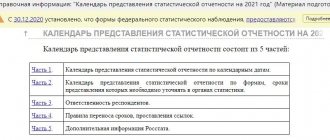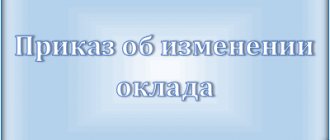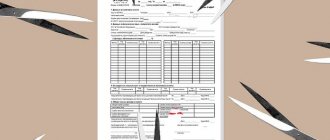One of the main ways to enrich the state treasury is a tax on income received by individuals. It is withheld from all types of wages, both in cash and in kind. The attention of citizens to this popular category of collection never weakens: the income of each family depends on its size. How to calculate income tax on wages and apply benefits - read on.
How to calculate income tax on wages
Features of personal income tax deduction from wages
Personal income tax withholding from wages in 2021 is carried out on the basis of the tax base, tax deductions and tax rates. It should be noted that they are used to calculate income tax only for residents of the Russian Federation. The tax rate, depending on individual income, can be:
- for residents of the Russian Federation - 9%, 13% and 35%;
- for non-residents of the Russian Federation - 30%.
In accordance with Article 217 of the Tax Code of the Russian Federation, some income is not taxed and is not taken into account when calculating personal income tax.
Tax deductions affect the calculation of personal income tax. Let's look at them in a little more detail. A tax deduction is the amount by which the tax base is reduced (before calculating the amount of tax payable).
The types of personal income tax deductions are as follows:
Standard deductions (provided to the following categories of citizens):
- parents who are dependent on a student (who is under 24 years of age);
- parents (adoptive parents, guardians) who have minor children.
The right to receive a deduction for children appears from the month of birth of the child, or from the period of his adoption, registration of documents for guardianship.
The standard tax deduction for children is: 1,400 rubles (1–2 children), 3,000 rubles (3 or more children).
Please note that from January 1, 2021, a bill approved by the Government of the Russian Federation came into force, according to which the threshold amount for receiving a deduction increases. Now it is not 280,000 rubles (per year), but 350,000. The calculation is carried out on an accrual basis from the beginning of the year. In 2021, this amount will not change and will remain at the 2021 level in the amount of 350,000 rubles.
Also, starting from 2021, the deduction for each disabled child to parents (adoptive parents) was increased from 3,000 to 12,000 rubles. For adoptive parents and guardians, the deduction will be increased - from 3,000 to 6,000 rubles.
In 2021, a deduction in the amount of 6,000 rubles is provided to guardians, adoptive parents, trustees for each child recognized as disabled before reaching 18 years of age. In 2018, the same amount is provided for a deduction for disabled children of groups 1 and 2, full-time students under the age of 24.
In 2021, a deduction in the amount of 12,000 rubles is provided for parents of disabled children up to the age of 18, or for a disabled person of groups 1 or 2 who is a full-time student up to 24 years of age.
When calculating wages, a deduction of 3,000 rubles in 2018 is provided to the following categories of employees:
- participants in the liquidation of consequences at the Chernobyl nuclear power plant and other objects exposed to radioactive contamination;
- citizens participating in nuclear weapons testing;
- disabled people of the Second World War;
- military personnel who became disabled while participating in hostilities.
When calculating wages, a deduction of 500 rubles in 2018 is provided to the following categories of employees:
- heroes of the USSR and the Russian Federation;
- participants in military operations to defend the country;
- concentration camp prisoners;
- citizens staying in Leningrad during the siege;
- disabled children, as well as groups 1 and 2;
- workers who have suffered radiation sickness, evacuated from radioactive zones, etc.
Social deductions (provided for the following purposes):
- for personal training or for teaching children;
- for treatment;
- for the purchase of medicines;
- for pension provision.
Property deductions (provided for the following purposes):
- car sales;
- purchase (sale) of real estate (apartment, house, land).
The property deduction can only be used once.
Property deductions are discussed in detail in Article 218 of the Tax Code of the Russian Federation.
Algorithm for determining the NFDL rate
Thus, the determination by an accounting employee of the rate at which a particular income is required to be taxed implies the following algorithm of actions:
- determination of the tax status of a citizen. If he is a tax resident of the Russian Federation, and his income is not a material benefit from loans, winnings or a prize - rate No. 2 from the list (13%), if it is - No. 5 (35%).
- If a person is a non-resident, find out whether he has a work patent, whether he is a voluntary migrant, a refugee or a resident of the EAEU states. If yes - bet number 2, if no - analysis of the type of his income.
- Determining whether the income of a non-resident not mentioned in the previous paragraph constitutes dividends. If yes - rate No. 3 from the list (15%), if no - 30%.
The amount of all deductions, including income tax from wages, according to Art. 138 of the Labor Code and letter of the Federal Tax Service No. BS-4-11 / [email protected] , should not exceed 20% (and in some cases - 50%) of the salary.
Procedure for withholding personal income tax from the minimum wage
If a citizen receives a minimum income that is no more than the established subsistence level, this does not exempt him from paying personal income tax, which will be calculated according to general rules.
An employee is entitled to only one standard tax deduction. The only benefit that can be summed up is the deduction for each child.
That is, when calculating personal income tax on an employee’s minimum salary, the tax will be withheld at the established rate of 13% or 30% minus the amount of the benefit.
The employer can withhold additional payments to the FSSP or alimony only after the personal income tax has been calculated.
How does the standard tax deduction work?
Let's assume you receive a monthly income of 20,000 rubles. On this amount, the employer pays a tax of 13% to the state, that is, 2,600 rubles. Total on hand - 17,400.
Let’s assume that you are entitled to standard deductions in 2021 for personal income tax per child in the amount of 1,400 rubles (we’ll talk about this in more detail below).
In this case, first 1,400 are deducted from your salary of 20,000 rubles, and 13% personal income tax (2,418 rubles) is paid from the remaining amount of 18,600. In total you will receive 17,582.
The procedure for withholding personal income tax for a separate division of the organization
In accordance with paragraph 7 of Article 226 of the Tax Code of the Russian Federation, an organization that has separate divisions pays income tax for individuals at the location of each of them. The amount of personal income tax payable is determined on the basis of the amount of income of taxpayers that was received under civil contracts and employment contracts. Income tax is paid at the location of the separate division of the organization.
One important point should be paid attention to. Let's assume that an employee worked in several separate divisions of an LLC for a month. In such a situation, the withholding of personal income tax and payment of tax on the income of a given individual is made to the budgets at the location of each of the separate divisions of the organization. The time actually worked in each of the separate divisions of the organization is also taken into account.
Income exempt from tax
Before including any income in the personal income tax base, you should refer to Art. 217 of the Labor Code of the Russian Federation, which provides a list of funds exempt from collection of this tax. So, for example, tax is not withheld from:
- alimony (assigned by a court decision)
- compensation payments (travel allowance or severance pay, for example)
- financial assistance not exceeding 4,000 rubles. in 12 months (for a wedding, for a vacation) due to the death of a relative or an emergency;
- B&R and unemployment benefits;
- scholarships,
- pension payments,
- subsidies and grants to peasants and farms for their creation and operation, issued since 01/01/2012;
- residential premises and land plots received free of charge from the property of the state or municipality.
In addition, if in 2021 all compensation to defrauded individual shareholders was subject to personal income tax, now funds paid to victims from the special fund are exempt from this (clause 71, p. 217 of the Tax Code).
From January 1, 2021, the list of amounts not subject to personal income tax includes discounts on Russian ruble-denominated negotiable bonds that were issued after January 1, 2021 (clause 2 of Article 1 of Federal Law No. 58-FZ dated April 3, 2017).
Tax is not paid on labor remuneration for the first 15 days of the month (advance payment). It is worth calculating and transferring it with the entire salary accrued at the end of the month
What is not subject to personal income tax calculation?
We have already mentioned that among the income there are those that are not subject to income tax calculation, namely:
- social pensions;
- social benefits;
- maternity benefits;
- scholarships;
- alimony;
- unemployment benefits;
- compensation (daily expenses);
- lump sum maternity benefit;
- monthly allowance for child care up to 1.5 years;
- monthly compensation for child care up to 3 years old.
The full list is contained in Article 217 of the Tax Code of the Russian Federation.
Minimum and average salary in the Czech Republic 2020
- In 2021, the minimum wage in the Czech Republic is 14,600 Kč.
- In 2021, the minimum wage in the Czech Republic was 13,350 Kč.
- In 2021, the minimum wage in the Czech Republic was 12,200 Kč.
- In 2021, the minimum wage in the Czech Republic was 11,000 Kč.
- In 2021, the minimum wage in the Czech Republic was 9,900 Kč.
- In 2015, the minimum wage in the Czech Republic was 9,200 Kč.
- In 2014, the minimum wage in the Czech Republic was 8,500 Kč.
- In 2013, the minimum wage in the Czech Republic was 8,500 Kč
From the above example it can be seen that every year there is an increase in wages by approximately 9-10%
čistá mzda is the net salary in the Czech Republic
- Superhrubá mzda or super rough salary is a salary taking into account the gross salary, plus contributions made by the employer, plus tax. Superhrubá mzda = gross salary + 25% social insurance + 9% health insurance + income tax.
- Hrubá mzda or gross salary is the employee’s salary before contributions to health insurance and social insurance. These deductions to health insurance and social insurance are made by the director from the employee’s salary (according to the law), the employee, in turn, receives a net salary in his hands or into his account. Hrubá mzda = net salary + 6.5% social insurance + 4.5% health insurance.
- Čistá mzda or net salary is what the employee (director) receives in his hands or into his account, after paying taxes, as well as making contributions to health insurance and social insurance.
Refund of over-withheld personal income tax in 2021
In order to make a personal income tax refund, an individual must write a statement, which can be written in any form. The document must include the taxpayer's bank account details. It is to him that the excess withheld personal income tax will be returned.
Today, there are two options for returning excessively withheld personal income tax.
Option 1
After the expiration of the tax period, that is, at the end of the reporting year, when settlements related to the employee have already been completed, the individual entrepreneur does not have the right to refund the excess withheld income tax. In this case, the taxpayer can independently contact the tax service to receive the funds due to him.
Tax officials themselves will recalculate personal income tax if the employee provides them with the following list of documents:
- statement;
- declaration;
- documents confirming the applicant's right to return.
The money will go to the bank account specified in the employee’s application.
Option 2
When personal income tax payments for an employee have not yet been completed, an individual entrepreneur can independently pay the individual. The procedure in this situation is as follows:
1. Check the employee’s statement. 2. Recalculate income tax. 3. Prepare an accounting statement. 4. Notify the employee about the overpayment of personal income tax. 5. At the request of the employee, return the funds to him. 6. Make changes to the tax card (it indicates accruals, transfers and withholdings of income tax).
The individual entrepreneur is obliged to notify the employee of the fact of excessive tax withholding and inform him of the amount within 10 days from the moment this fact is discovered.
Salary in the Czech Republic and tax benefits, discounts
Tax benefits can be taken into account if the employee has signed “Prohlášení poplatníka daně z příjmů fyzických osob ze závislé činnosti a funkčních požitků”, that is, the taxpayer’s statement.
- Taxpayer discounts: 24,840 Kč (per month 2,070 Kč);
- Discount for students: 4020 Kč (per month 335 Kč);
- Discount for children: first child 13,404 Kč (1,117 Kč per month), two children (+ 1,417 per month), third or more children (+ 1,717 per month). For disabled children, this discount is multiplied by 2.
Deadlines for returning excessively withheld personal income tax
An individual entrepreneur makes a refund of income tax from funds that must be transferred to the budget both for a specific taxpayer and from the income of his other employees.
Refunds of over-withheld personal income tax must be made within three months from the date of receipt of an application for a refund from an individual. If the individual entrepreneur does not pay the employee the amount on time, the entrepreneur is obliged to pay interest to the employee.
It may happen that an individual entrepreneur does not have the opportunity to refund income tax to an employee due to the fact that the individual entrepreneur’s accounts are frozen. In such a situation, the employee needs to contact the tax office, which will refund the personal income tax to the individual at its own expense.








